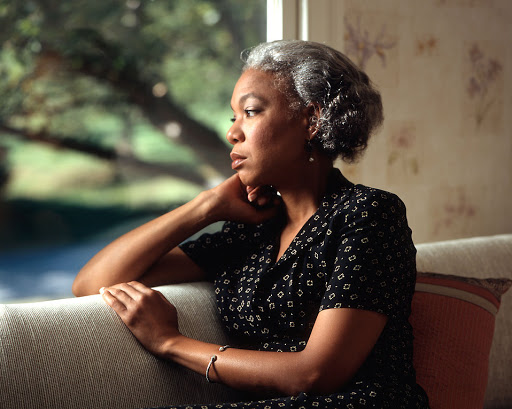Esohe* grew up in a large polygamous family of over 50 members. Then she moved out, got married and now has one child. Now, she’s incredibly lonely and misses the bustle of her noisy childhood

This is Esohe’s* story, as told to Itohan.
When people say they had a large family, they usually mean having ten to eleven siblings. Mine was larger. My father had three wives. The first had six children, the second had five children, and the third had eleven. Four out of those children died and my father was left with 18 biological children.
When my uncle died, my father took up the responsibility of raising his eight children. My father’s cousin was also unable to take care of his children, so that means we got an extra six children in the house. If you add the young boys my father was also raising for reasons I do not know, there were enough children to start a football league. When people ask what my position is in the family, I don’t give them an answer because I don’t know. There were more children than I could keep track of.
Growing up with so many people in the house meant there was never a dull moment. There was always someone to play with, cause mischief with, and blame what you did on. We also hardly ever fought. Occasionally, one child would bully another, but for the most part, we got along just fine. Even the wives learnt to get along.
My grandmother, the matriarch of the household, ran a very tight ship. If any of the wives fought, they weren’t allowed to cook food for themselves or their husband. My grandmother believed that if the wives fought, they’d start thinking of ways to kill each other, and she didn’t want to risk anyone poisoning her son. If the wives didn’t cook for their husbands, they too wouldn’t eat. In the village, if you didn’t cook for your husband, you weren’t allowed to put on your fire. Why would you be cooking when your husband wasn’t going to eat from the food? The women would be stuck with only garri and coconut or whatever else they could find. Not only would they not cook, but they’d also have to pay a fine of two fowls or one goat. That was enough to keep everyone on their best behaviour.
The children regularly got into a lot of mischief. Everyone feared us in the community because if anyone harassed any one of us, it meant they’d declared war against our entire household, and we’d storm their houses demanding our pound of flesh. As scared as they were of us, they also loved us very much because of my father. During festivities like Christmas and church harvests, he opened up his home to everyone so they could eat and drink to their fill.
RELATED: 5 Nigerians Share Their Best Christmas Memory
The house would be busy with children trying to prepare and guests dancing to music and laughing over good food. My father used to save money from the beginning of the year so he could buy the biggest goat during the church harvest in November. When he paid for it, the church youths would carry the goat to our house while the rest of us sang and danced along.
However, as we grew up and children left the family house, the bustle of the activities reduced and the house gradually grew quieter. When I was eleven, I also left to go live with one of my half-sisters in Benin city. I missed home but it was bearable. Her family was way smaller than mine but between going to school and helping her raise her two children, I was occupied enough.
I finished secondary school at seventeen and moved in with an older brother and his three children in Lagos. Because some of my other siblings also lived with my brother, I was back to being in a house with more than ten people. The problem with having so many people in one house in a city like Lagos is that things never went round — food was never enough, for example. That’s why I decided that when I got married, I’d have just two or three children. Enough people to keep me company, but not so much that they’d have to struggle for food and clothes.
The older I got, the more I fell out of touch with my family members. Some were starting families of their own, had travelled to different continents, gotten new jobs, and no longer had time for each other. We tried to keep in touch, but life becomes different when you’re an adult.
It took a while for me to get married and an even longer time to have a child. I felt incredibly lonely. My husband was the primary breadwinner, and I had two small businesses I was doing to keep busy. He’d go out early in the morning and return late at night. With work going on, I tried to focus on my work but I knew something was missing.
I didn’t have any friends — at least not the kind that was close enough to talk to constantly. The way I was brought up in such a large family, I hardly spoke to anyone that wasn’t a family member. My husband also wasn’t someone that kept friends, so I didn’t want to be the wife that constantly brought people he didn’t know to the house. The few friends I had were people I knew from church, and I spoke to them only when I was in church.
The first Christmas after my wedding, I started my own traditions by decorating the house and inviting guests over. But when the party was over and the last of the guests left, it would be just me and my husband. The house was awfully quiet.
By the second Christmas, I hadn’t given birth but I still tried to celebrate. I decorated my house and called over some guests, but after they left, I felt lonely again. The problem with the holidays was there was no work to keep me busy. I was left alone with my thoughts. I tried to talk to my husband about it, but he’s the kind of person that likes to be by himself. He’s the first son and has always been independent. He didn’t relate to how I felt.
The third Christmas came, and I couldn’t bring myself to go through another party. Having to decorate and deal with the quiet when everyone left would have been too much for me. Instead, I got involved in church activities. Navigating church, work and spending time with my husband might mean I didn’t have a lot of time to dwell on the loneliness.
I threw myself into overseeing my business and when that got boring, I went to church. I’d close from work sometimes around 5 p.m. and go to church by 6 p.m for a service that’d last till 8 p.m. anything to keep loneliness at bay. By the time I was done with church, I’d be home by 9 p.m, too tired to think about anything. I was stressed from so much activity and my blood pressure went up. g My husband complained and encouraged me to take it easy, but I didn’t stop. Work and church were my distractions from loneliness.
In 2001, and at the age of 38, I finally had my first and only child. Finally, there was light in my life again. Having her in my life made me feel less lonely and gave me purpose. I would dress her up in pretty dresses and take pictures of her. I even started our own Christmas tradition of giving gifts on the 26th of December. I resumed decorating and inviting people over because the holidays no longer caused me pain. My business wasn’t doing as well anymore, so I was now a stay-at-home wife and mother.
When she started school at two, I couldn’t stay away from her because I missed her so much. I’d take her to school and drop her off, sometimes sticking around the school compound to watch her interact with the other children. There wasn’t much for me to do elsewhere anyway.
RELATED: 10 Nigerians Talk About Being an Only Child
When she went off to boarding school at nine, I visited her almost every week. My husband had started working in another state at the time, and I barely saw him, my loneliness quadrupled. I desperately needed someone to talk to. I’d also spend more time at church, because what else was there to do? When I wasn’t visiting my daughter or at church, I’d attend to some menial tasks and run errands just to distract myself.
I saw my child for only three months out of the year and I relished those moments. She would tell me stories about her friends; she even introduced them to me. She’d sleep in my bed and we’d talk about our day and pray together. She told me I was her best friend. Unfortunately, children grow up and need their space, so they stop talking to their parents as much.
When she went away to university at the age of seventeen, her school was over 300km away by road because it was in another state. I could no longer show up as much as I wanted. I even contemplated getting a masters degree in her school just so I could be near her. To make matters worse, she hardly called me. Sometimes, I’d cry myself to sleep because I hadn’t heard from her in days, and I wondered if she was okay. When she did eventually call to say a rushed, “I’m doing okay,” it was like a knife to my ears. I couldn’t tell her about it, and my husband didn’t understand how I felt because he was too busy with work. Most of the time, it was just me alone at night with my thoughts.
After two years of enduring this treatment, I finally spoke to her about how her silence made me feel. She promised to do better, and she is trying but not the way I’d like her to. My daughter is too comfortable going days without talking to me or anyone else for that matter. She’s a worse version of my husband. At least, he calls me every day even when he’s not around. It’s just that we still don’t live in the same state, so I hardly see or touch him.
My daughter is about to finish school now, and I’m hoping she gets married. Marriage means in-laws I could probably spend time with and grandchildren, right? Life gets boring and lonely. I’m grateful for the family I have, but I wish I had a bigger family.
RELATED: 8 Nigerians Share How They Fell Out of Love With Their Family Members




